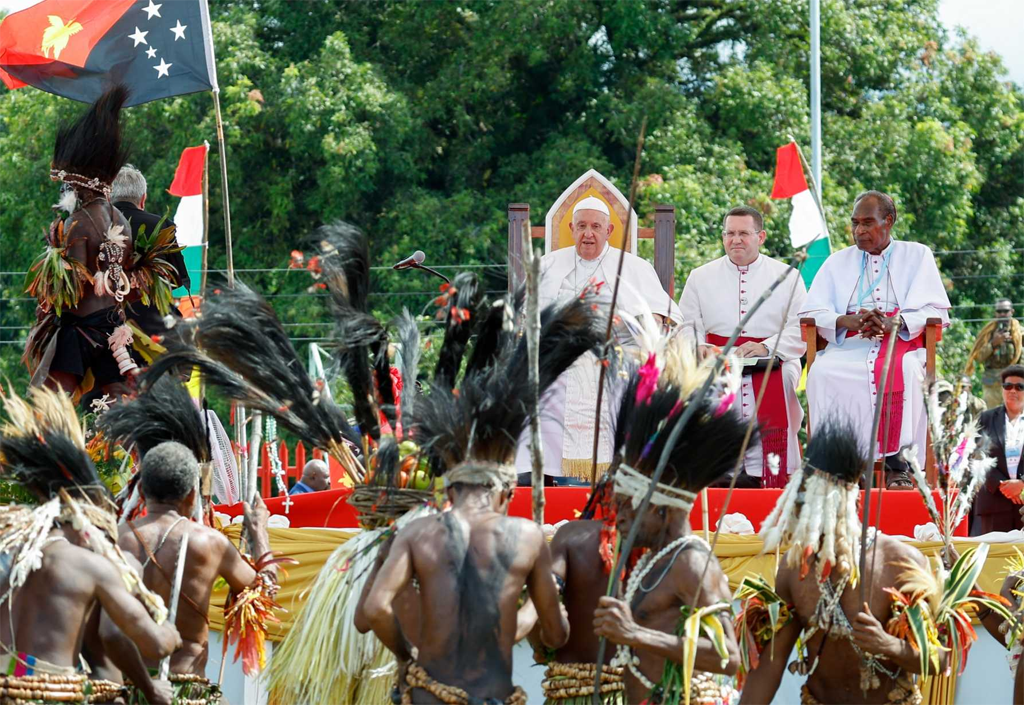
| Time/Week | Monday | Tuesday | Wednesday | Thursday | Friday | Saturday |
|---|---|---|---|---|---|---|
| 8:15 – 9:05AM | English | English | English | Catechism | English | |
| 9:10 – 10:00 AM | English | English | English | Catechism | English | |
| 10:15 – 11:05 AM | Liturgy | Scripture | Music (Comb) | Salvation History | English | |
| 11:10 - 12:00 PM | Liturgy | Scripture | Music (Comb) | Salvation History | English | Music Practice |
| 2:00 - 4:00 pm | Work Ministry | Work Ministry | Sports | Work Ministry | Work Ministry | Sports |
This course is designed to enhance students' English language proficiency in preparation for their studies at a Major Seminary. It emphasizes the development of the four fundamental language skills: listening, speaking, reading, and writing. Through this comprehensive approach, students will gain a deeper understanding of English grammar. It is important to note that English constitutes 50% of the total credit for the first year of study.
Learning Outcomes:
Upon completing the grammar and composition segment, seminarians
will be able to articulate their thoughts clearly and accurately in writing,
reading, and speaking. They will develop proficiency in comprehension, fluency,
word analysis, and study techniques. Furthermore, the course seeks to instill a
passion for reading and speaking while fostering self-confidence.
This course offers an introduction to Catholic beliefs and
practices through an examination of the Catechism of the Catholic Church.
Learning Outcomes:
Seminarians will be equipped to
discuss the essential tenets of Catholic doctrine as outlined in the Catechism
of the Catholic Church. They will also be able to provide clear and precise
answers to fundamental catechetical questions.
Seminarians engage in an exploration of the significance and
function of symbols, rites, music, and the liturgical environment in the
celebration of liturgy. If time allows, they may also delve into the history of
liturgical rites from both the East and West.
Learning Outcome:
Seminarians will be equipped to articulate a nuanced
understanding of the vital role of liturgy and prayer in Catholic life. They
will be able to explain the purposes of various types of both official and
unofficial liturgy and prayer in Christian contexts. Furthermore, they will be
skilled in preparing effective liturgical celebrations tailored to diverse
communities, utilizing official liturgical texts.
This course provides an
introduction to the Bible, equipping seminarians with the skills to interpret
scripture through various methodologies: literal, allegorical, analogical,
tropological, and plenary. It examines the historical background, literary
qualities, and theological themes of the texts, establishing a solid foundation
for contemporary interpretation and application. The focus of the unit will be on selected
biblical texts, including Genesis, Exodus, Judges, the minor and major
prophets, and the Book of Kings from the Old Testament, as well as several New
Testament letters by Paul and the Book of Hebrews.
Learning Outcome:
1. To address and
correct misconceptions surrounding Protestant interpretations of scripture that
are prevalent in PNG culture.
2. To cultivate
meaningful interpretations of biblical texts for contemporary audiences,
especially within a Catholic Christian context, by engaging with modern
biblical scholarship and theology.
This course delves
into the history of salvation, tracing its narrative from the creation of Adam
and Eve to the anticipated Second Coming of Jesus Christ. Students will engage
in a comprehensive examination of the key figures, covenants, and pivotal
events that define salvation history.
Learning Outcome:
Seminarians will achieve a
nuanced understanding of the core tenets of the Roman Catholic faith, including
recognition of significant figures, covenants, and events within the context of
salvation history.
